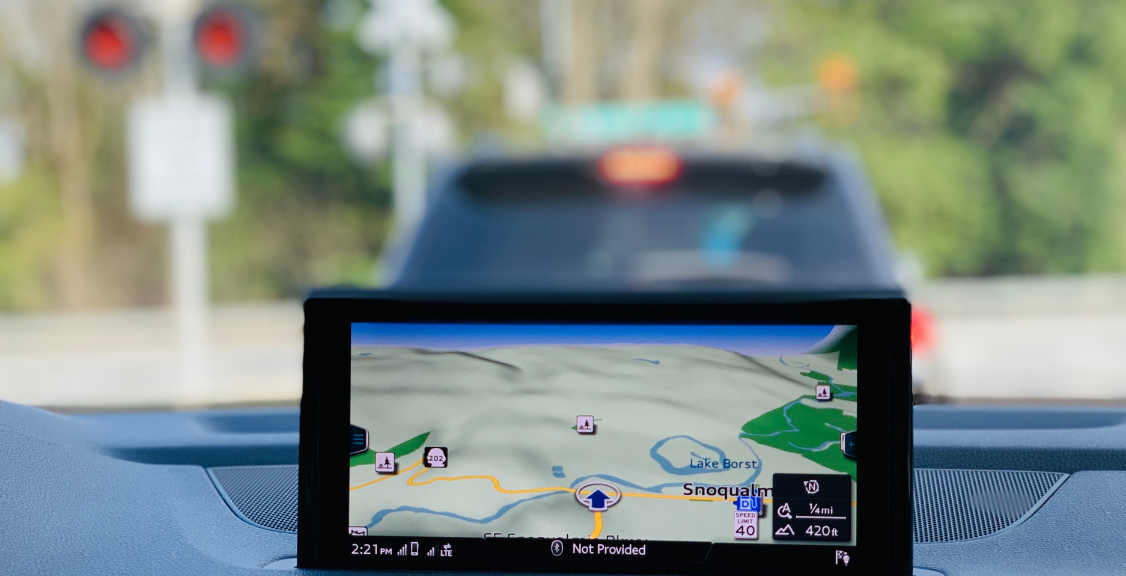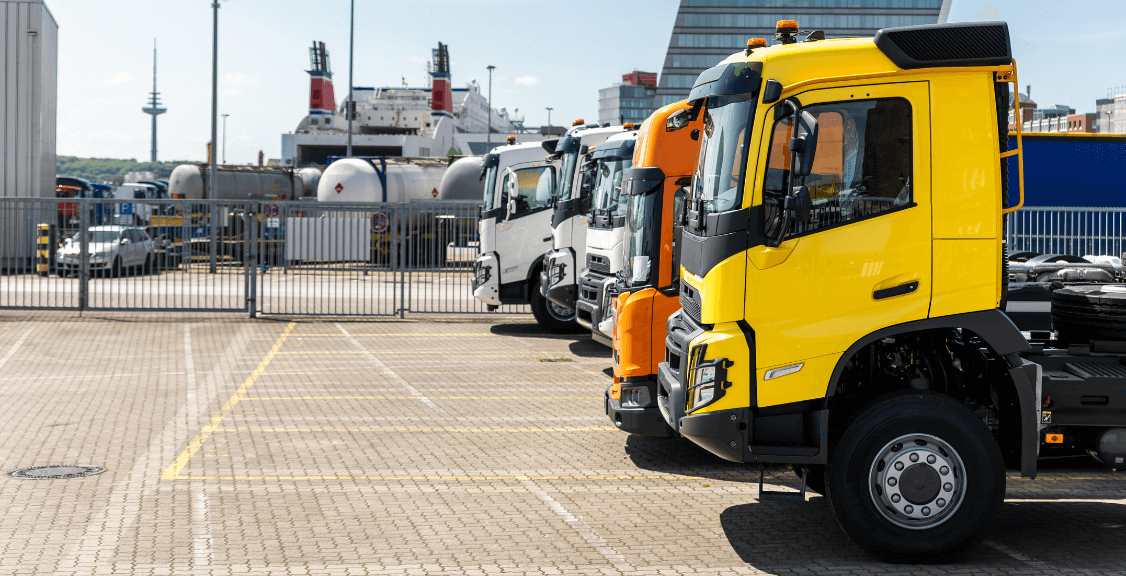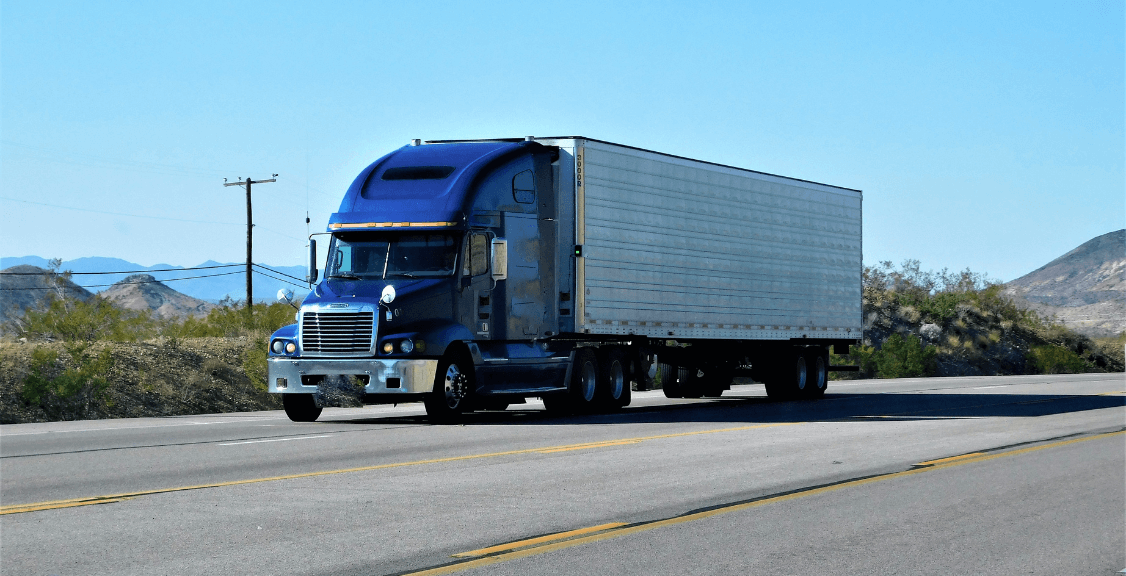Key Takeaways
- GPS tracking provides real-time visibility into your fleet’s location and activities, enabling efficient dispatching, route optimization, and improved driver safety.
- GPS tracking can significantly lower fuel costs and decrease overall transportation expenses by optimizing routes and reducing idling time.
- Enhanced supply chain visibility allows for proactive identification and mitigation of potential disruptions, ensuring timely deliveries and improved customer satisfaction.
- GPS tracking data can be used to monitor driver behavior, identify areas for improvement, and promote safer driving practices.
- Choosing the right GPS tracking solution with features that align with your business needs and a user-friendly interface is essential for successful implementation and maximizing ROI.
Table of Contents
GPS Tracking in Logistics Businesses
Tracking trucks in real time is essential for businesses that rely on efficient deliveries and transportation. Knowing exactly where your vehicles are at any given moment allows you to optimize routes, monitor driver behavior, and ensure timely deliveries. This is where GPS tracking steps in, providing an effective solution for businesses to manage their fleets and improve their logistics operations.

GPS tracking uses a network of satellites to pinpoint the location of vehicles equipped with tracking devices. This technology allows businesses to track their trucks in real time, providing valuable insights into their movements and performance. By utilizing GPS tracking, companies can enhance their supply chain visibility, reduce costs, and improve overall efficiency.
In this article, we’ll explore the various ways GPS tracking is transforming the logistics industry. We’ll explore its applications, benefits, and examples, showcasing how this technology is upgrading fleet management and supply chain operations.
Understanding GPS Tracking Technology
GPS tracking relies on a network of satellites orbiting the Earth. These satellites continuously transmit signals containing their location and precise time. GPS receivers in tracking devices installed on trucks pick up these signals. By analyzing the time it takes for signals to arrive from multiple satellites, the device accurately calculates its location.

This location information is then wirelessly transmitted to a central server. Specialized software processes this data and displays it on a map interface. This allows businesses to monitor their vehicles’ exact location, track their movements, and gather valuable insights into their operations.
Beyond basic location tracking, GPS devices can also collect data on vehicle speed, fuel consumption, and engine performance. This information can be used to optimize routes, improve driver behavior, and proactively maintain vehicles, leading to increased efficiency and cost savings.
Applications of GPS Tracking in Logistics
GPS tracking is a versatile tool with a wide range of applications in the logistics industry. Here are some of the key ways businesses are using it to enhance their operations:

Real-time Location Tracking
One of the most fundamental applications of GPS tracking is the ability to monitor the real-time location of vehicles. This provides businesses with instant visibility into their fleet’s whereabouts, enabling them to:
- Improve Dispatching and Route Planning – Dispatchers can assign the nearest available vehicle to a job, minimizing travel time and improving response times. They can also monitor traffic conditions and make real-time adjustments to routes to avoid delays.
- Enhance Security and Theft Prevention – Real-time tracking acts as a deterrent to theft and allows for quick recovery of stolen vehicles. Geofencing features can also send alerts if a vehicle enters or exits a designated area.
- Monitor Driver Behavior – GPS tracking can provide insights into driver behavior, such as speeding, harsh braking, and excessive idling. This data can be used to improve driver safety and reduce fuel consumption.
Route Optimization and Planning
GPS tracking plays a crucial role in optimizing routes and minimizing transportation costs. By analyzing historical data and real-time conditions, businesses can:
- Identify the most efficient routes – GPS tracking software can consider factors like traffic, road conditions, and delivery schedules to determine the most efficient routes for drivers.
- Reduce fuel consumption and mileage – Optimized routes lead to shorter distances traveled, which translates to lower fuel costs and reduced wear and tear on vehicles.
- Improve delivery times and customer satisfaction – Efficient routing ensures timely deliveries, which enhances customer satisfaction and strengthens brand reputation.
Delivery Tracking and Proof of Delivery (POD)
GPS tracking enables businesses to track shipments in real-time and provide customers with accurate estimated arrival times (ETAs). This improves transparency and communication throughout the delivery process.
- Track shipment progress – Customers can monitor the progress of their deliveries online or through mobile apps, reducing anxiety and uncertainty.
- Capture electronic proof of delivery – GPS tracking systems can capture electronic proof of delivery (POD) with timestamps and location data, eliminating disputes and improving accountability.
Driver Behavior Monitoring
GPS tracking can monitor driver behavior, providing insights into driving habits that impact safety and efficiency.
- Identify risky driving patterns – Tracking speeding, harsh braking, and aggressive acceleration helps identify drivers who may require additional training or coaching.
- Improve driver safety – By promoting safe driving practices, businesses can reduce accidents and protect their drivers and cargo.
- Optimize fuel efficiency – Monitoring and correcting inefficient driving behaviors, such as excessive idling, can significantly reduce fuel consumption.
Inventory Management and Warehouse Efficiency
While often associated with vehicle tracking, GPS technology can also be applied to improve inventory management and warehouse operations.
- Track the movement of goods – GPS tracking can be used to monitor the movement of goods within a warehouse or distribution center, improving inventory accuracy and reducing losses.
- Optimize storage and retrieval – Real-time location data can help optimize storage locations and facilitate picking and packing processes.
GPS technology offers a comprehensive suite of tools to optimize logistics operations. By leveraging these applications, businesses can gain a competitive advantage by improving efficiency, reducing costs, and enhancing customer satisfaction.
Benefits of GPS Tracking in Logistics
Implementing GPS tracking in your logistics operations can bring a wide range of benefits to your business. From increased efficiency and cost savings to improved customer satisfaction, here’s how GPS tracking can positively impact your revenue:

Increased Efficiency and Productivity
GPS tracking helps streamline logistics operations, eliminating inefficiencies and maximizing productivity. By having real-time visibility into your fleet’s location and activities, you can:
- Optimize Routes and Reduce Travel Time – Efficient routing minimizes mileage and travel time, allowing drivers to complete more deliveries in less time.
- Improve Dispatching and Resource Allocation – Dispatchers can assign the closest available vehicle to each job, reducing response times and optimizing resource utilization.
- Monitor Driver Performance and Identify Areas for Improvement – Tracking data can reveal areas where drivers can improve their performance, such as reducing idling time or avoiding unnecessary detours.
Cost Reduction
GPS tracking can significantly reduce operational costs in several ways:
- Lower Fuel Costs – Optimized routing and reduced idling time translate to lower fuel consumption, resulting in significant cost savings.
- Decrease Maintenance Expenses – By monitoring vehicle diagnostics and identifying potential maintenance issues early on, you can prevent costly analyses and extend the lifespan of your vehicles.
- Minimize Insurance Premiums – Improved driver safety and reduced accident rates can lead to lower insurance premiums.
Enhanced Supply Chain Visibility
GPS tracking provides end-to-end visibility across your supply chain, enabling you to:
- Track Shipments in Real-time – Monitor the progress of your shipments from origin to destination, providing accurate ETAs and proactive updates to customers.
- Improve Communication and Collaboration – Real-time data sharing facilitates better communication and collaboration between all stakeholders in the supply chain.
- Identify and Mitigate Potential Disruptions – By monitoring potential delays or disruptions, you can take proactive measures to minimize their impact and maintain smooth operations.
Improved Customer Satisfaction
GPS tracking plays a essential role in enhancing customer satisfaction by:
- Providing Accurate ETAs – Real-time tracking allows you to provide customers with accurate estimated arrival times, reducing anxiety and uncertainty.
- Enhancing Communication and Transparency – Keeping customers informed about the status of their deliveries builds trust and strengthens relationships.
- Ensuring Timely Deliveries – Efficient routing and optimized operations ensure that deliveries arrive on time, meeting customer expectations and building loyalty.
GPS tracking authorizes logistics companies to optimize their operations from the ground up. By increasing efficiency, reducing costs, and improving customer satisfaction, this technology offers a clear path to achieving a significant competitive advantage in today’s demanding market.
Examples and Case Studies
While the benefits of GPS tracking are clear, seeing how it works in practice can be even more impactful. Let’s explore some examples of how businesses across different industries are using GPS tracking to optimize their logistics operations:
1. A National Beverage Distributor Streamlines Deliveries and Reduces Fuel Costs
A leading beverage distributor faced challenges with inefficient routing and high fuel costs. By implementing a GPS tracking system with route optimization features, they were able to:
- Reduce delivery times by 15% – Optimized routes minimized travel time and ensured drivers took the most efficient paths to their destinations.
- Decrease fuel consumption by 10% – Reduced mileage and idling time translated to significant fuel savings.
- Improve driver productivity – Drivers were able to complete more deliveries per day, leading to increased efficiency.
2. A Construction Company Enhances Equipment Security and Prevents Theft
A construction company with valuable equipment stored at various job sites was concerned about theft and unauthorized use. By installing GPS trackers on their equipment, they were able to:
- Deter theft – The knowledge that their equipment was being tracked acted as a deterrent to potential thieves.
- Recover stolen assets – When a piece of equipment was stolen, they were able to quickly locate it and recover it with the help of law enforcement.
- Monitor equipment utilization – GPS tracking data provided insights into how and when the equipment was being used, helping them optimize their operations.
3. An E-commerce Retailer Improves Delivery Accuracy and Customer Satisfaction
An e-commerce retailer was struggling with inaccurate ETAs and delivery delays, leading to customer complaints and negative reviews. By integrating GPS tracking with their delivery management system, they were able to:
- Provide accurate ETAs to customers – Real-time tracking data enabled them to provide customers with precise delivery estimates, reducing anxiety and improving satisfaction.
- Reduce delivery delays – Optimized routing and real-time traffic updates helped minimize delays and ensure timely deliveries.
- Enhance customer communication – Proactive updates and notifications kept customers informed throughout the delivery process, building trust and loyalty.
4. A Food Delivery Service Optimizes Delivery Routes and Enhances Customer Experience
A popular food delivery service wanted to improve delivery times and enhance the customer experience. By equipping their drivers with GPS tracking devices and utilizing route optimization software, they were able to:
- Reduce delivery times by 20% – Optimized routes, minimized travel time, and ensured drivers took the fastest routes to customers.
- Improve order accuracy – GPS tracking helped ensure drivers were dispatched to the correct locations, minimizing errors and improving customer satisfaction.
- Enhance real-time order tracking – Customers could track their orders on a map in real time, providing transparency and reducing uncertainty.
These examples demonstrate the versatility and effectiveness of GPS tracking in addressing diverse logistical challenges. From reducing costs and improving efficiency to enhancing security and customer satisfaction, GPS tracking is changing how businesses operate and compete in the modern industry.
Choosing the Right GPS Tracking Solution
With so many GPS tracking solutions available, it’s important to choose the one that best fits your business requirements. Here are some key factors to consider when making your decision:

Features and Functionality
Look for a solution with real-time tracking and a user-friendly interface. Prioritize features that align with your needs, such as route optimization, geofencing, and driver behavior monitoring. Ensure the platform offers comprehensive reporting and analytics to gain valuable insights into your fleet’s performance.
Scalability and Integration
Choose a solution that can accommodate your current fleet size and future growth. Smooth integration with your existing logistics management systems, like TMS or ERP software, is essential for streamlined operations and efficient data sharing.
Provider Reputation and Support
Select a provider with a proven track record in the logistics industry and excellent customer support. Reliable support channels and a comprehensive training program are essential for successful implementation and maximizing the system’s benefits.
Don’t Overlook the Importance of User Experience
Prioritize a user-friendly and intuitive interface for both managers and drivers. Mobile accessibility and customizable dashboards are essential for easy access to real-time data and enhanced decision-making.
FAQs about GPS Tracking in Logistics
It’s natural to have questions about how GPS tracking works and how it can benefit your logistics operations. We’ve compiled answers to some of the most frequently asked questions to help you make informed decisions about implementing this valuable technology. Here’s a quick guide to address your concerns:
What is the accuracy of GPS tracking in logistics?
GPS tracking is generally very accurate, often providing location data within a few meters of a vehicle’s actual position. However, factors like signal obstructions (tall buildings, dense forests), atmospheric conditions, and the quality of the GPS receiver can affect accuracy. Most modern GPS tracking systems utilize advanced algorithms and technologies to minimize these factors and provide highly accurate location data.
How much does GPS tracking for logistics cost?
The cost of GPS tracking for logistics varies depending on factors like the number of vehicles being tracked, the features included in the system, and the chosen provider. Some providers offer a monthly subscription model, while others may have upfront hardware costs and ongoing service fees. It’s essential to get quotes from multiple providers and compare the features and pricing to find the best solution for your budget and needs.
Is GPS tracking mandatory for logistics companies?
While GPS tracking is not universally mandatory for all logistics companies, certain industries and regulations may require it. For example, companies transporting hazardous materials or operating in specific jurisdictions may be required to use GPS tracking for safety and compliance reasons. Even when not mandatory, GPS tracking is becoming increasingly common in the logistics industry due to its numerous benefits and competitive advantages.
Can GPS tracking help with route optimization?
Yes, GPS tracking is a valuable tool for route optimization. Many GPS tracking systems include route optimization features that consider real-time traffic conditions, road restrictions, and delivery schedules to determine the most efficient routes for drivers. This helps reduce mileage, fuel consumption, and delivery times, leading to cost savings and improved customer satisfaction.
We hope these FAQs have provided clarity and addressed any questions you may have about GPS tracking in logistics. If you have further inquiries or require specific information related to your business needs, don’t hesitate to reach out to a reputable GPS tracking provider like Geosavi Fleet Solutions for expert guidance.
Elevate Efficiency, Optimize Operations, and Drive Growth with GPS Tracking
GPS tracking has emerged as an indispensable tool for businesses of all sizes, providing real-time visibility, optimizing operations, and driving cost savings. From small delivery services to large-scale trucking companies, GPS tracking authorizes businesses to enhance their supply chain visibility, improve driver safety, and increase customer satisfaction.

By embracing this technology, companies can gain a significant competitive advantage. The ability to track vehicles in real time, optimize routes, and monitor driver behavior leads to increased efficiency, reduced costs, and improved customer service. Moreover, GPS tracking fosters transparency and accountability across the supply chain, building trust with customers and partners.
If you’re looking to improve your logistics operations, implementing a GPS tracking solution is a wise investment. With the right provider and a well-chosen system, you can achieve efficiency, productivity, and profitability.
Contact Geosavi Fleet Solutions today to explore how our advanced GPS tracking solutions can transform your logistics operations and drive your business forward.